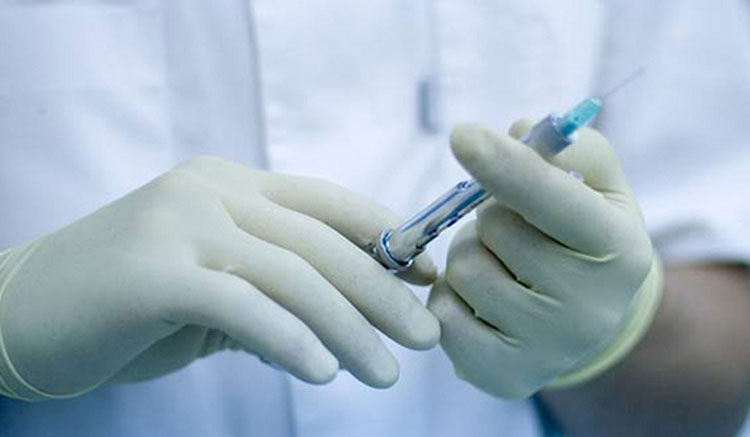HPV Vaccine: 1 Shot May Be as Good as 3

Get the world’s most fascinating discoveries delivered straight to your inbox.
You are now subscribed
Your newsletter sign-up was successful
Want to add more newsletters?

Delivered Daily
Daily Newsletter
Sign up for the latest discoveries, groundbreaking research and fascinating breakthroughs that impact you and the wider world direct to your inbox.

Once a week
Life's Little Mysteries
Feed your curiosity with an exclusive mystery every week, solved with science and delivered direct to your inbox before it's seen anywhere else.

Once a week
How It Works
Sign up to our free science & technology newsletter for your weekly fix of fascinating articles, quick quizzes, amazing images, and more

Delivered daily
Space.com Newsletter
Breaking space news, the latest updates on rocket launches, skywatching events and more!

Once a month
Watch This Space
Sign up to our monthly entertainment newsletter to keep up with all our coverage of the latest sci-fi and space movies, tv shows, games and books.

Once a week
Night Sky This Week
Discover this week's must-see night sky events, moon phases, and stunning astrophotos. Sign up for our skywatching newsletter and explore the universe with us!
Join the club
Get full access to premium articles, exclusive features and a growing list of member rewards.
One or two doses of the human papillomavirus (HPV) vaccine may prevent infection by the virus as well as the standard three-dose regimen, a new study conducted in Costa Rica suggests.
Four years after vaccination, participants who received all three HPV shots were no better protected against strains 16 and 18 of HPV than those who received one or two shots.
The HPV vaccine is given to prevent cervical cancer . HPV strains 16 and 18 are the most common cause of cervical cancer.
Cutting back on the number of HPV shots each patients receives would save time and money, potentially leading to more women getting vaccinated. A study conducted last year found that less than one third of young women who receive one HPV shot complete the full series .
The results are particularly important in developing countries, where the cost of providing three HPV shots per person makes the vaccine impractical to administer, the researchers said. About 85 percent of the world's cases of cervical cancer occur in developing countries, which lack effective cancer screening programs.
"We are very enthusiastic about these findings," said study researcher Aimée Kreimer, of the Division of Cancer Epidemiology and Genetics at the National Cancer Institute. "If they're confirmed by other studies, then providing this vaccine to girls and women around the world will be much cheaper and much easier. In the end, it could really reduce the amount of cervical cancer there is."
However, more research is needed to see if the results hold in other populations, and to determine if one or two doses of the HPV vaccine can be effective for more than four years, Kreimer said.
Get the world’s most fascinating discoveries delivered straight to your inbox.
HPV vaccination
The study involved 7,466 women ages 18 to 25 who were randomly assigned to receive three doses of the Cervarix HPV vaccine or three doses of a control vaccine for hepatitis A. About 20 percent of participants did not end up receiving all three doses, usually because they became pregnant (the HPV vaccine is not given to pregnant women) or they were referred for a colposcopy (an exam in which a visual inspection of the cervix is performed, to see abnormal-appearing cells).
In all, 5,967 women received three vaccine doses (2,957 received the HPV vaccine; 3,010 received the hepatitis A vaccine), 802 received two doses (422 of the HPV; 380 of the hepatitis A), and 384 received one dose (196 of the HPV; 188 of the hepatitis A).
Samples from the subjects were tested for the DNA from HPV 16 and 18. The researchers looked for persistent HPV infections that lasted 10 or more months.
Statistically, there was no difference in the HPV vaccine's efficacy among the three groups that received different numbers of doses, the researchers said. The vaccine was found to be 80 percent effective among the women who received three doses, 84 percent effective for two doses and 100 percent effective for one dose.
Is one dose good enough?
The Cervarix vaccine does not contain the complete human papillomavirus, only virus proteins. Vaccines made this way have historically needed more than one dose to be effective in the long term, Kreimer said.
"The vaccine, when given in three doses, elicits a very strong immune response," she said. Still, even the subdued immune response brought about by one dose might be adequate protection.
Cosette Marie Wheeler, of the department of obstetrics and gynecology at the University of New Mexico, noted that the study was not specifically intended to evaluate vaccine HPV vaccine efficacy with fewer than three doses.
Researchers need to conduct "additional larger studies that are specifically designed to evaluate the efficacy of one-, two-, and three-dose regimens in young adolescent girls," Wheeler wrote in an editorial accompanying the study, which was published Sept. 9 in the Journal of the National Cancer Institute.
"The age-old adage of 'Less is more' may apply to HPV vaccination, and if so, the report ... represents an important step on the road to more-effective and sustainable cervical cancer prevention programs," Wheeler said.
Pass it on: One or two doses of the HPV vaccine may be just as effective as three doses.
- What to Do (And Not to Do) to Ease Kidsâ?? Vaccination Pains
- 5 Dangerous Vaccine Myths
- HPV Vaccine Sees Poor Completion Rates
Follow MyHealthNewsDaily staff writer Rachael Rettner on Twitter @RachaelRettner. Find us on Facebook.

Rachael is a Live Science contributor, and was a former channel editor and senior writer for Live Science between 2010 and 2022. She has a master's degree in journalism from New York University's Science, Health and Environmental Reporting Program. She also holds a B.S. in molecular biology and an M.S. in biology from the University of California, San Diego. Her work has appeared in Scienceline, The Washington Post and Scientific American.
 Live Science Plus
Live Science Plus










